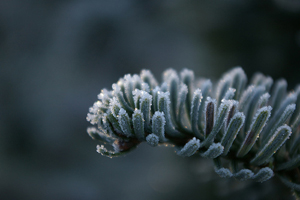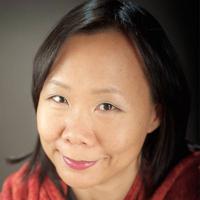
For some people, Christmas is one of the most emotionally fraught times of year, perhaps due to the presence or absence of family combined with all the social and financial expectations and pressures of the season.
For me, Christmas changed forever when I was 11 years old. My father had been diagnosed with cancer. After three months in hospital, he came home for Christmas Eve. A circle of close friends and relatives surrounded his bed in the afternoon. In the evening, he lay on the couch while the house filled with guests wishing to greet him. I barely exchanged 10 words with him. It would be the last time he would be at home, and the last time I would see him alive.
For many years after his death, our family Christmases would be subdued. We'd go to the cemetery to put a wreath and some flowers by my father's grave. We'd have our butterball turkey and can of cranberry jelly. The presents would continue to be spartan and often disappointing. After having tried her best, my mother would retreat to her bedroom to be alone in the dark to brood, while my siblings and I would watch cheery family Christmas specials on television that reaffirmed how weird we were compared to "normal," perfectly groomed North American families who sung carols, ate multi-course feasts, and inundated their children with gorgeously wrapped trendy toys. The branches on our artificial tree would sag lower each season despite our attempts to drape over the gaps with tinsel.
Of course, as kids we tended to see the grass being greener (or the white Christmas being whiter, or more abundant in every possible way) on the other side, and had no idea that other kids (other than the occasional televised images of malnourished children in Ethiopia) had it much worse. But irrespective of presents, family finances or what was or was not on the dinner table, what I couldn't articulate at the time was the profound disconnection and hollowness I felt during that one Christmas and others afterward.
The adults around me had been too preoccupied to talk to me about my father's cancer or his prognosis. There was no one to talk to after he died about the subject. Only when I became an adult myself dealing with my own health issues did I come to understand what my father might have gone through.
Turning grief into connection
A few years ago, I decided to compile a set of poems written by a sampling of published Canadian poets about their journey with cancer that cancer patients and survivors could relate to and find affirming. I sought to showcase not only good poems, but also poems that depicted a gamut of experiences -- not just fear, frustration, discomfort, and despair, but also resolve, persistence, hope, tenderness, delight, and even beauty. As American poet Muriel Rukeyser wrote, "the universe of poetry is the universe of emotional truth." Through poetry, I wanted to give my father the acknowledgment and understanding he deserved that I was unable to provide him when I was a child, and transform an experience of isolation and grief into an act of connection.
The set of poems became a slim volume published this fall, entitled The Bright Well. (Three of the local contributors discussed their poems in the book on CBC Radio recently.) Proceeds are going to the Callanish Society, which provides retreats and programs for cancer patients and their families.
Here is a pantoum by Cape Breton poet, Sandra Dunn, from the collection that shows how we sometimes find strength and protection from unexpected sources within us, and how we manage to keep fear, particularly the fear of death, at bay.
Safe Waters
By Sandra Dunn
I heard my grandmother today.
I don't know where her voice came from.
I will teach you to swim, she tells me.
I will hold your head above the water.
I don't know where her voice came from.
I am surrounded by green-gowned sterility.
I will hold your head above the water.
I will not let you fall under the sea.
I am surrounded by green-gowned sterility.
I am slipping into oblivious slumber.
I will not let you fall under the sea.
I know I will not sleep the sleep of the dead.
I am slipping into oblivious slumber.
Her voice becomes an echo in a rain barrel.
I know I will not sleep the sleep of the dead.
She will not let me fall under the sea.
© Sandra Dunn 2011 ![]()
Read more: Health















